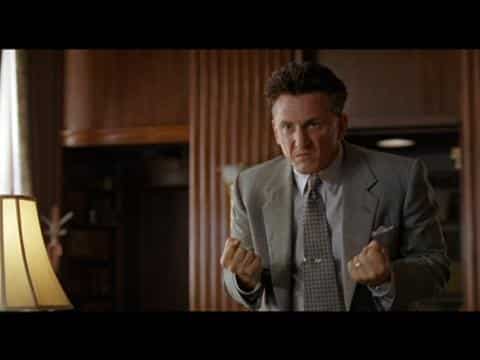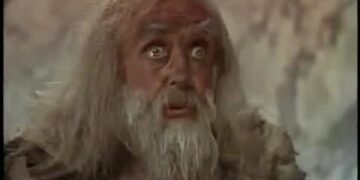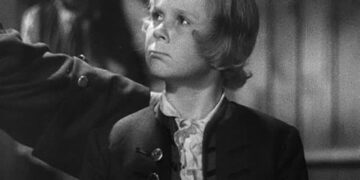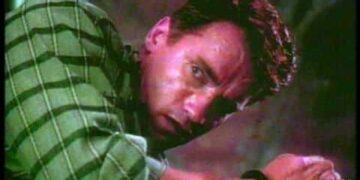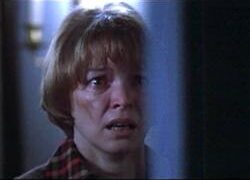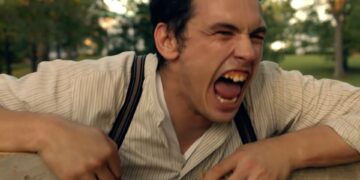“All the King’s Men” is a literary masterpiece written by Robert Penn Warren. Set in the 1930s, this Pulitzer Prize-winning novel takes readers on a journey through the complex lives of its characters and explores the themes of power, corruption, and redemption. With its rich storytelling and thought-provoking narrative, “All the King’s Men” has captivated readers for decades.
Plot Summary of “All the King’s Men”
The story of “All the King’s Men” revolves around the life of Willie Stark, a charismatic and ambitious politician. The novel, narrated by Jack Burden, Stark’s right-hand man, delves into the rise and fall of Stark’s political career. Beginning as an idealistic lawyer fighting for the rights of the common people, Stark is seduced by power and becomes corrupted by the very system he sought to change. As the plot unfolds, secrets are revealed, relationships are tested, and tragedy strikes, leading to a dramatic climax that leaves readers questioning the nature of morality and the consequences of unchecked ambition.
Analysis of Major Characters in “All the King’s Men”
In “All the King’s Men,” Robert Penn Warren paints a vivid portrait of complex characters who grapple with their own inner demons. Willie Stark, the central figure, undergoes a transformation from an idealistic reformer to a ruthless politician driven by his thirst for power. Jack Burden, the narrator, serves as a lens through which readers view the events of the novel. His journey from detached observer to an active participant in the corruption surrounding Stark highlights the moral ambiguity of the human condition. Other key characters such as Anne Stanton, Sadie Burke, and Judge Irwin add depth and nuance to the story, each grappling with their own personal struggles and desires.
Key Themes and Symbolism in “All the King’s Men”
“All the King’s Men” explores several key themes, including the corrupting influence of power, the nature of morality, and the search for redemption. Through vivid imagery and symbolism, Warren weaves a tapestry of interconnected ideas. The “Great Twitch” represents the forces that shape human destiny, while the “burden of the past” symbolizes the weight of one’s actions and the consequences they bear. The novel also delves into the complexities of love, guilt, and betrayal, inviting readers to reflect on the choices we make and the impact they have on our lives.
The Movie Adaptation of “All the King’s Men” – Summary and Differences from the Book
In 2006, “All the King’s Men” was adapted into a film directed by Steven Zaillian. Starring Sean Penn as Willie Stark and Jude Law as Jack Burden, the movie aimed to capture the essence of Warren’s novel on the silver screen. While the film remained faithful to the overall plot and themes of the book, there were notable differences. The movie condensed certain storylines, omitted some characters, and altered the ending to provide a more cinematic experience. Despite these changes, the film still offered a compelling portrayal of the book’s central themes and characters.
Exploring the Historical Context of “All the King’s Men”
To fully appreciate the depth of “All the King’s Men,” it is essential to examine the historical context in which the novel takes place. Set during the Great Depression and the era of Huey Long’s political influence, Warren’s work reflects the tumultuous political climate of the time. Long’s rise to power and subsequent assassination served as inspiration for Willie Stark’s character, highlighting the recurring themes of corruption and the abuse of power. By understanding the historical backdrop, readers gain a deeper understanding of the motivations behind the characters’ actions and the societal forces that shaped their world.
Notable Quotes from “All the King’s Men”
Throughout “All the King’s Men,” Robert Penn Warren’s prose is filled with profound and thought-provoking quotes. Here are a few notable examples:
- “The end of man is knowledge, but there is one thing he can’t know. He can’t know whether knowledge will save him or kill him.”
- “Man is conceived in sin and born in corruption and he passeth from the stink of the didie to the stench of the shroud. There is always something.”
- “The world is like an enormous spider web and if you touch it, however lightly, at any point, the vibration ripples to the remotest perimeter.”
These quotes offer insight into the existential themes present in the novel and provoke contemplation on the complexities of human nature.
The Soundtrack of “All the King’s Men” by James Horner – Background and Impact
The soundtrack of “All the King’s Men,” composed by James Horner, adds a powerful layer of emotion to the film adaptation. Horner’s music captures the essence of the story, heightening the tension, evoking the despair, and accentuating the triumphs and tragedies of the characters. With its sweeping orchestral arrangements and haunting melodies, the soundtrack immerses viewers in the world of “All the King’s Men” and enhances the overall cinematic experience.
Curiosities and Interesting Facts about “All the King’s Men”
“All the King’s Men” is a work that continues to captivate readers and spark curiosity. Here are a few interesting facts about the novel:
- The title of the book is derived from the famous nursery rhyme “Humpty Dumpty.”
- “All the King’s Men” was initially met with mixed reviews but gained popularity over time, eventually earning Robert Penn Warren the Pulitzer Prize for Fiction in 1947.
- The character of Willie Stark was inspired by the real-life Louisiana politician Huey Long.
These curiosities and facts add depth to the understanding and appreciation of Warren’s novel.
Tips for Cosplay and Dressing like Willie Stark and Jack Burden
For fans looking to immerse themselves in the world of “All the King’s Men,” cosplay provides an opportunity to step into the shoes of their favorite characters. To dress like Willie Stark, opt for a sharp, tailored suit in muted colors, paired with a wide-brimmed hat and a charismatic smile. For Jack Burden, go for a more casual yet intellectual look with tweed jackets, bowties, and a vintage camera as a prop. These tips will help fans bring the iconic characters to life and showcase their love for the novel.
Robert Penn Warren – A Biography of the Author
Robert Penn Warren, born in 1905, was an American poet, novelist, and literary critic. He is best known for his work in “All the King’s Men,” which solidified his place in literary history. Warren’s writing explored themes of power, morality, and the human condition, often drawing inspiration from his Southern upbringing. In addition to his writing, Warren was a respected academic, teaching at several universities and mentoring aspiring writers. His contributions to American literature earned him numerous awards, including the Pulitzer Prize for Fiction and the National Book Award.
Five Best Works by Robert Penn Warren
In addition to “All the King’s Men,” Robert Penn Warren has written several other noteworthy works. Here are five of his best works, each offering unique insights into the human experience:
- “Night Rider” (1939): Warren’s debut novel explores the tensions between tradition and progress in a Southern community.
- “Brother to Dragons” (1953): This historical novel delves into the life and death of Thomas Jefferson, combining fact and fiction to shed light on one of America’s founding fathers.
- “The Cave” (1959): Set in a fictional Kentucky community, this novel examines the complexities of race, religion, and class.
- “Audubon: A Vision” (1969): Combining poetry and prose, Warren presents a fictionalized account of the life of the renowned naturalist and artist, John James Audubon.
- “A Place to Come To” (1977): This novel explores the lives of a diverse group of individuals living in a small New England town, grappling with love, loss, and the search for meaning.
These works showcase Warren’s versatility as a writer and his ability to tackle a wide range of themes and subjects.
Other Media Adaptations by Steven Zaillian
Steven Zaillian, the director of the film adaptation of “All the King’s Men,” has brought many other literary works to the big screen. Here are a few notable examples:
- “Schindler’s List” (1993): Based on the novel by Thomas Keneally, this powerful film tells the true story of Oskar Schindler, a German businessman who saved over a thousand Jewish lives during the Holocaust.
- “The Girl with the Dragon Tattoo” (2011): Adapted from Stieg Larsson’s bestselling novel, this thrilling crime drama follows a journalist and a skilled hacker as they delve into a dark web of secrets and murder.
- “Moneyball” (2011): Inspired by Michael Lewis’s non-fiction book, this sports drama explores the innovative strategies used by the Oakland Athletics baseball team to compete against wealthier franchises.
Steven Zaillian’s film adaptations demonstrate his ability to bring compelling stories to life on the screen, capturing the essence of the source material.
Ten Movies Similar to “All the King’s Men”
If you enjoyed the complexity and political intrigue of “All the King’s Men,” here are ten other movies that you might find intriguing:
- “Citizen Kane” (1941): Orson Welles’ masterpiece explores the rise and fall of a media mogul in a story reminiscent of Willie Stark’s journey.
- “The Godfather” (1972): Francis Ford Coppola’s crime epic delves into the dark underbelly of power and corruption within a powerful Italian-American family.
- “No Country for Old Men” (2007): Directed by the Coen brothers, this neo-Western thriller examines the consequences of greed and violence in a changing world.
- “The Ides of March” (2011): Set in the world of American politics, this film explores the moral compromises made by a young press secretary during a heated presidential campaign.
- “House of Cards” (2013-2018): While not a movie, this critically acclaimed television series follows the Machiavellian schemes of a ruthless politician as he ascends the ranks of power.
- “Gangs of New York” (2002): Martin Scorsese’s historical drama delves into the political corruption and violence of 19th-century New York City.
- “Milk” (2008): This biographical film tells the story of Harvey Milk, the first openly gay elected official in California, and his fight for equal rights.
- “The Insider” (1999): Based on a true story, this film explores the ethical dilemmas faced by a whistleblower who exposes corruption within the tobacco industry.
- “Mr. Smith Goes to Washington” (1939): Frank Capra’s classic film follows a naive but idealistic senator as he takes on a corrupt political system.
- “The Departed” (2006): Martin Scorsese’s crime thriller delves into the intertwining lives of an undercover cop and a mole within the Boston police force, showcasing the blurred lines between right and wrong.
These movies offer compelling narratives and explore similar themes of power, corruption, and the human condition.
Book Club Discussion Questions for “All the King’s Men”
If you’re part of a book club or simply want to delve deeper into the themes of “All the King’s Men,” here are some discussion questions to consider:
- How does Willie Stark’s transformation from an idealistic reformer to a corrupt politician reflect the themes of power and corruption in the novel?
- In what ways does Jack Burden’s journey mirror the moral dilemmas faced by the characters in the novel? How does his perspective shape the narrative?
- How does the historical context of the Great Depression and the influence of Huey Long enhance the understanding of the novel’s themes?
- Discuss the symbolism and imagery used throughout the novel. How do these literary devices contribute to the overall meaning of the story?
- What is the significance of the title “All the King’s Men” in relation to the events and themes of the novel?
These discussion questions provide a starting point for engaging conversations about the novel’s themes and the moral complexities of its characters.
Ten Novels Similar to “All the King’s Men”
If you’re a fan of Robert Penn Warren’s masterpiece “All the King’s Men” and looking for similar reads, you’re in luck. Here are ten novels that capture the essence of political intrigue, power struggles, and moral dilemmas, just like Warren’s iconic work.
- “The Great Gatsby” by F. Scott Fitzgerald: Set in the Roaring Twenties, this classic novel explores the corrupting influence of wealth and ambition. Like “All the King’s Men,” it delves into the dark side of the American Dream.
- “The Power Broker” by Robert A. Caro: Caro’s Pulitzer Prize-winning biography of New York City planner Robert Moses is an immersive exploration of political power and its consequences. It offers a deep dive into the complexities of governance, reminiscent of Warren’s narrative.
- “Wolf Hall” by Hilary Mantel: This historical fiction masterpiece follows the rise of Thomas Cromwell in the court of Henry VIII. Like “All the King’s Men,” it brilliantly portrays the manipulations and machinations of those in power.
- “The Prince” by Niccolí² Machiavelli: Machiavelli’s classic treatise on political power and leadership is a must-read for anyone interested in the dynamics of politics. It shares themes with “All the King’s Men,” exploring the moral compromises individuals make to gain and maintain power.
- “1984” by George Orwell: Orwell’s dystopian masterpiece presents a chilling vision of a totalitarian state where power is absolute. Like “All the King’s Men,” it raises questions about the nature of power and its impact on individuals and society.
- “Moby-Dick” by Herman Melville: While seemingly different from “All the King’s Men,” Melville’s epic novel is a profound exploration of obsession, power, and the human condition. It shares the same depth and complexity that makes Warren’s work so compelling.
- “The Trial” by Franz Kafka: Kafka’s haunting novel follows the surreal journey of a man caught in the grip of an incomprehensible bureaucratic system. Like “All the King’s Men,” it delves into themes of justice, morality, and the abuse of power.
- “The Jungle” by Upton Sinclair: Sinclair’s groundbreaking exposé of the meatpacking industry is a powerful exploration of corruption and exploitation. It shares the same investigative spirit as “All the King’s Men,” shedding light on the dark underbelly of society.
- “Brave New World” by Aldous Huxley: Huxley’s dystopian novel paints a disturbing picture of a future society controlled by technology and conditioning. Like “All the King’s Men,” it challenges the reader to reflect on the consequences of unchecked power.
- “The Godfather” by Mario Puzo: Puzo’s iconic novel delves into the world of organized crime and the exercise of power within the mafia. Like “All the King’s Men,” it explores the moral complexities of individuals in positions of authority.
Parent Guide for “All the King’s Men” – Content Review and Suitability for Different Age Groups
As a parent, it’s important to consider the content of “All the King’s Men” before allowing your child to read it. Here’s a breakdown of the book’s themes, language, and suitability for different age groups.
Content Overview: “All the King’s Men” is a complex novel that explores themes of political corruption, moral ambiguity, and the pursuit of power. It includes scenes of violence, sexual content, and strong language. The narrative delves into the darker side of human nature and the consequences of unchecked ambition.
Suitability for Age Groups:
- Young Adults (Ages 14-17): While mature young adults may appreciate the themes and complexities of the novel, parental guidance is advised due to the explicit content and mature themes.
- Adults: The book is suitable for adult readers who are comfortable with mature content and can appreciate the nuanced exploration of power dynamics and moral dilemmas.
It’s important to have open discussions with your child about the themes and content of “All the King’s Men” to ensure they have a clear understanding of the book and its implications.
Buying Guide and Gift Ideas for Fans of “All the King’s Men”
If you or someone you know is a fan of “All the King’s Men,” here’s a buying guide and a list of gift ideas that will surely be appreciated.
1. “All the King’s Men” 75th Anniversary Edition: This special edition of the book includes bonus features such as author interviews and annotations, providing a deeper understanding of the novel’s context and themes.
2. “Robert Penn Warren: A Biography” by Joseph Blotner: Dive into the life of the author himself with this comprehensive biography. It sheds light on Warren’s inspirations and the creative process behind “All the King’s Men.”
3. “All the King’s Men” Movie DVD: Experience the story on screen with the movie adaptation of “All the King’s Men.” It offers a different perspective on the narrative and allows fans to compare the book to its visual interpretation.
4. “Political Intrigue” Book Set: For fans of political dramas and power struggles, a curated book set featuring titles like “The Great Gatsby,” “Wolf Hall,” and “1984” would make a thoughtful gift.
5. “Writing Political Fiction” Masterclass: Give the gift of knowledge with an online masterclass on writing political fiction. It’s a perfect choice for aspiring writers and fans of “All the King’s Men” who want to explore the genre further.
These gift ideas are sure to delight any fan of “All the King’s Men” and provide them with a deeper appreciation for the novel and its themes.
Conclusion
“All the King’s Men” by Robert Penn Warren is a timeless classic that delves into the intricacies of power, corruption, and moral dilemmas. If you enjoyed this masterpiece, you’ll find similar themes explored in other novels like “The Great Gatsby” and “1984.” As a parent, it’s important to consider the content of “All the King’s Men” before allowing your child to read it. And if you’re looking for the perfect gift for a fan of the book, consider options like the 75th Anniversary Edition, the movie adaptation, or a curated book set on political intrigue. Dive into the world of “All the King’s Men” and discover its profound insights into human nature and the pursuit of power.


